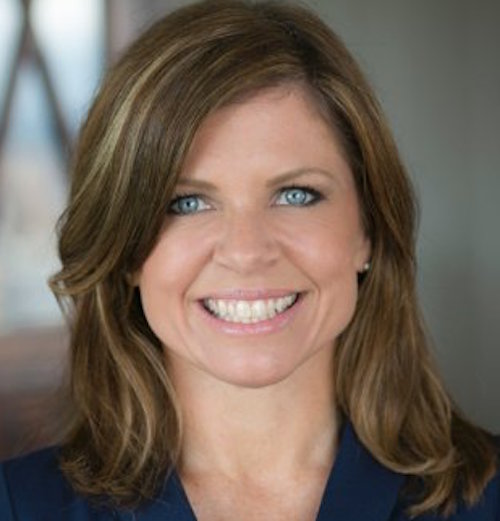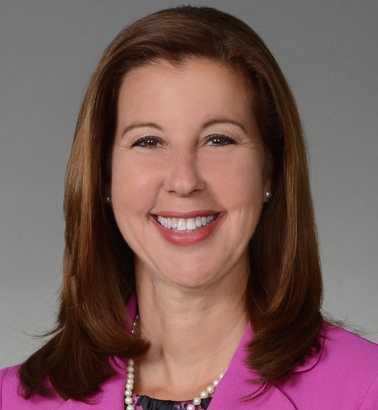Editor’s Note: This is the fourth in a series of articles. To read other articles in the series, click here: article 1, article 2, article 3
Over the past three months, I have interviewed 15 women who are trendsetters and innovators in the impact and sustainable finance sector. These women leaders are clear about today's capital market opportunities and risks. They are embracing both as the investment industry transitions toward a low carbon economy with greater emphasis on the economic value of intangible corporate assets and social impact enterprises.
These women are using their industry experience and leadership platforms to articulate a powerful message regarding the rapid growth in the use of non-financial data to drive investment performance and risk management.
Deploy Impact Capital More Rapidly
 When asked what her unique skill sets are, “sound business judgement and the desire to help others”, have been Allyson McDonald’s, CEO at Work Capital, most valuable tools. Launched May 2017, Work Capital is McDonald’s answer to deploying capital more rapidly into impact investing opportunities and the firm has already doubled its assets this year. Work Capital is an asset management and consulting firm focused on delivering performance with purpose, institutional rigor and authenticity to impact investing. Currently Work Capital has large cap core ESG strategies, and thematic lens strategies focused on gender equality, climate change, social justice, and sustainable infrastructure.
When asked what her unique skill sets are, “sound business judgement and the desire to help others”, have been Allyson McDonald’s, CEO at Work Capital, most valuable tools. Launched May 2017, Work Capital is McDonald’s answer to deploying capital more rapidly into impact investing opportunities and the firm has already doubled its assets this year. Work Capital is an asset management and consulting firm focused on delivering performance with purpose, institutional rigor and authenticity to impact investing. Currently Work Capital has large cap core ESG strategies, and thematic lens strategies focused on gender equality, climate change, social justice, and sustainable infrastructure.
I was excited to talk to McDonald about Work Capital’s new role managing the Heron Foundation’s U.S. Community Investing Index (USCII). She and her partner at Work Capital, Jason Britton, have recently been licensed to manage and distribute separately managed accounts for the USCII, which had previously been at State Street Global Advisors for nearly a decade. (Although SSGA no longer offers separately managed accounts, it continues to manage a common trust fund that aims to replicate the USCII.) The USCII is managed using an indexing approach, supporting companies that contribute positively to the communities in which they operate.
The USCII has performed in-line with the S&P 500 Index since inception and slightly outperformed in the 5-year period ended December 2017. Jason, CIO at Work Capital, came from US Trust where he was the architect and manager of their sustainable investing strategies. Work Capital assumed portfolio management and distribution responsibilities for the USCII in February 2018.
“My resume looks like that of a millennial,” quips McDonald, who has followed her business judgement instincts to take on leadership roles at various firms over the past 20 years, including Goldman Sachs, Fidelity, the Clinton Foundation and ImpactAssets. Like other women leaders I’ve interviewed, this process led to her current role along with the passionate belief that mass affluent investors should be more focused on financing a civil society that has less impact on planetary resources and provides more diverse work opportunities for all.
To bring mass affluent investors into the impact investing process, McDonald believes “it’s critical for financial advisors to engage with their clients on the purpose of their money.” For McDonald, the practical aspects of mission-focused portfolio strategies, whether these are strictly balance-sheet driven, or include philanthropic motives, should be part of the advisor/client dialogue.
Good Leaders Are Good Listeners
 Alyssa Greenspan began her career with Community Capital Management Inc. (CCM), 15 years ago as a portfolio manager and is now president and chief operating officer. She knows pretty much everything about how CCM manages $2.5 billion in fixed-income ESG/impact and fossil-free portfolios, as well as the daily details of the firm’s business plan for building relationships with investors and the financial advisor community.
Alyssa Greenspan began her career with Community Capital Management Inc. (CCM), 15 years ago as a portfolio manager and is now president and chief operating officer. She knows pretty much everything about how CCM manages $2.5 billion in fixed-income ESG/impact and fossil-free portfolios, as well as the daily details of the firm’s business plan for building relationships with investors and the financial advisor community.
In my conversation with Greenspan, we focused on how she has become a leader in getting the impact investing message out to the financial advisor community. She was clear that one of the biggest challenges in ESG/Impact investing right now is “having the bandwidth to tell your story to financial advisors and their investor clients.”
I was particularly interested in CCM’s innovative way of using social media to address this challenge. Greenspan credits two of her colleagues, and stressed the importance of being a good listener and encouraging employees to share their best ideas. One associate, tasked with expanding CCM’s business and social media outreach to investors and financial advisors, started regular posts on LinkedIn and Twitter about the “use of proceeds” impact bond investments that the firm has participated in capitalizing for shareholders. When a colleague suggested highlighting what these organizations are doing by giving an award for the best impact investing story of the year, Greenspan loved the idea.
In 2017, the firm launched CCM’s Annual Impact Awards. Readers vote on which impact story they like best, and the winner receives a $10,000 donation from CCM to further its community impact mission. These are success stories that advisors can tell clients and that demonstrate, as Greenspan said, CCM’s pioneering impact research “identifying, recording, and tracking the underlying environmental and social outcomes of every security in our portfolios.”
Among her many responsibilities, Greenspan manages the process of adding impact investing themes to diversify CCM’s product base. Greenspan agrees with other leaders in the asset management industry that ESG/impact investing will become the industry standard. Diversity and inclusion, environmental impact and other thematic approaches to equity, as well as fixed-income portfolio strategies, will be available to CCM shareholders in the future.
Greenspan listens carefully to what busy financial advisors say about the challenges of integrating ESG/impact investment strategies into client portfolios. As she put it, “Advisors have a lot of new information to absorb as this industry grows and investors demand more impact-focused investment choices.” At conferences and in her participation as a board member of industry NGOs dedicated to advisor education, Greenspan works to streamline what advisors need to know and target information so it’s easily accessible and brings value to the advisor community.
When asked for parting advice, Greenspan suggested that advisors participate in trade organizations whose mission is to support them and their clients in the financial planning process. She also recommended that advisors learn what their clients value as investors: “Tell them ESG and impact investing stories, especially women and millennial clients, and build a network of peers willing to share their experience of how to use impact investing to differentiate yourself from the competition.”
Paul Ellis founded Paul Ellis Consulting to work with financial advisors who want to integrate sustainable and impact investment strategies for their clients.